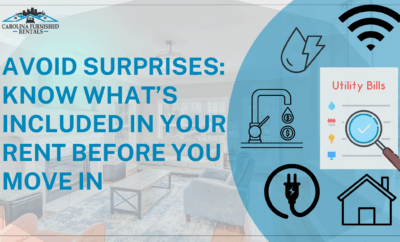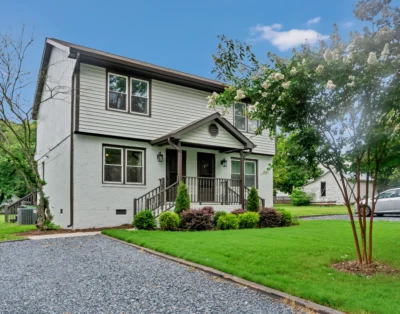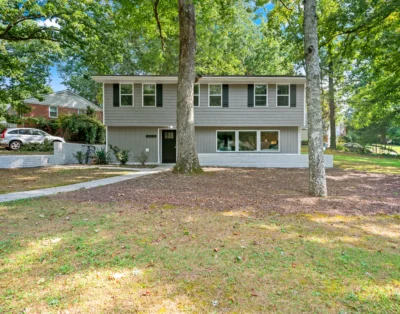How to Find Insurance Housing Fast During an Unexpected Relocation
Table of Contents
What to Do When Disaster Strikes
Your home is suddenly unlivable. Finding insurance housing is one of the first critical steps you’ll need to take after an unexpected disaster renders your home uninhabitable. Whether due to fire, storm, or another unexpected event, you find yourself facing an emergency relocation. The immediate question becomes: where do you go, and how will you afford it?
The good news? Most homeowner insurance policies include provisions for temporary housing. With the right information and action plan, you can find a furnished rental quickly, avoid unnecessary expenses, and begin getting your life back on track.
This guide will walk you through the steps to find insurance housing fast, avoid out-of-pocket costs, and move into a place that feels like home—even when life feels upside down
🛑 Step 1: Know What Your Insurance Covers
Start by checking your insurance policy. Look for a section called Loss of Use or Additional Living Expenses (ALE). This is what pays for your temporary housing if your home becomes unlivable due to a covered event—like:
- Fire
- Water damage or flooding
- Storm or wind damage
- Tree fall or structural collapse
Here’s what this coverage often includes:
- Rent for a furnished home or apartment
- Hotel accommodations when no rentals are available
- Extra transportation costs (if your rental is farther from work or school)
- Meals (when you don’t have a kitchen)
- Laundry or pet boarding if needed
Every policy is different. Most have either:
- A maximum dollar limit (e.g., $30,000–$50,000)
- A time limit (e.g., 12 months or until repairs are completed)
Don’t assume everything is covered. Read the details or ask your adjuster what your policy allows. This step helps you plan your stay without financial surprises.
☎️ Step 2: Ask Your Adjuster About Housing Help
Call your adjuster right away and ask: “Who arranges my temporary housing?”
“Can I choose my own short-term insurance housing option?”Call your adjuster right away and ask: “Who arranges my temporary housing?”
Some insurance companies work with housing placement services that find rentals for you and bill the insurer directly. These services can help:
- Speed up the process
- Avoid upfront payments
- Avoid upfront payments
Your adjuster is your key partner in this process. They can confirm what’s approved and what isn’t. You may be referred to a housing placement service or allowed to find your own space—especially if you need:
- Pet-friendly housing
- Proximity to school or work
- Flexible lease terms
Always get written approval before signing a lease or making any commitments. This keeps your claim on track and prevents delays in reimbursement.
📍 Open communication with your adjuster will ensure you avoid surprises.
🏡 Step 3: How to Choose the Right Insurance Housing Rental
Hotels work for a few nights, but they aren’t ideal long-term. If the repairs will take weeks or months, it’s time to move beyond hotel rooms. A fully furnished home or apartment will provide the comfort and functionality you need.
Here’s what ideal insurance housing should include:
- A full kitchen
- A clean bathroom
- Laundry access
- High-speed internet
- Furniture and cookware included
If you’re relocating with family or pets, you’ll need more than a studio. Ask about:
- Number of bedrooms
- Yard space or balcony
- Parking
- Nearby schools or work access
Websites like Airbnb and VRBO can work—but many insurers don’t cover those platforms directly. That means you might need to pay upfront and get reimbursed later.
A better option for many families: local furnished rental providers. These companies:
- Offer flexible leases
- Bill your insurer directly
- Understand insurance documentation
- Work fast to place you
🔹 Better Option: Carolina Furnished Rentals offers move-in ready insurance housing units with direct billing and local support. We work with your insurance company to make your stay seamless.
💰 Step 4: Set Realistic Expectations on Cost and Time
Repairs often take longer than expected. If you’re told repairs will be done in 60 days, mentally prepare for at least 90. Repair timelines often stretch, and housing costs can add up quickly. Plan beyond the initial estimate to avoid disruptions.
Insurance housing costs vary by city and home size. On average:
- 1-bedroom units: $3,000–$4,000/month
- 2- to 3-bedroom homes: $4,000–$6,000/month
- Premium locations or custom homes: $7,000+
🔗 Check rental prices in your area
If your ALE coverage maxes out at $30,000, that might only last 5–6 months at most. Use these numbers to evaluate how far your ALE coverage will take you. Ask your adjuster if extensions are available or if additional coverage can be added for longer repairs.
📊 Budgeting now helps prevent a crisis later.
📦 Step 5: Prepare for a Smooth Move
Once you’re approved:
- Take dated photos and video of your new rental’s condition
- Verify included services: Wi-Fi, parking, utilities
- Request flexible lease terms (month-to-month is ideal)
- Get all approvals in writing or a shared digital folder of documents
- Keep copies of your policy, receipts, and communications for reimbursement
Get your paperwork in order. Having receipts, approvals, and communications organized will help you get reimbursed quickly. A reputable insurance housing provider can simplify logistics, from deposits to maintenance.
🧳 Pack essentials for comfort: clothing, medications, documents, and anything that helps you feel at home during your temporary stay.
🏢 Why Choose Local Providers for Insurance Housing While national brands focus on vacation rentals, local providers prioritize people in transition.
At Carolina Furnished Rentals, we understand:
- The documentation required by insurers
- Urgency in move-ins after a disaster
- Flexible housing needs for families, executives, and pets
You benefit from:
- Immediate availability
- Local support staff
- Units designed for comfort and routine living
You don’t need to handle this on your own. We help people every week move into temporary housing during a stressful time. Our job is to make that part easy.
🎓 Bonus Tip: Stay Connected During Relocation
Displacement doesn’t mean disruption. Remote workers, students, and business travelers benefit from insurance housing rentals with high-speed internet and home offices.
You can also use RecurPost’s social media scheduling tools to stay in touch with friends or clients during your temporary stay if you’re a contract worker or business traveler.
✅ Final Tips
- Review your policy BEFORE an emergency happens
- Contact your adjuster right away after damage
- Work with a local, experienced provider
- Track costs carefully to avoid exceeding limits
📞 Need housing now?
Contact Carolina Furnished Rentals or call us directly at 919-736-6417.
If you or someone you know has been displaced and needs short-term housing, reach out today. We’ll help you find a move-in ready, insurance-approved home that brings peace of mind in a challenging time.








